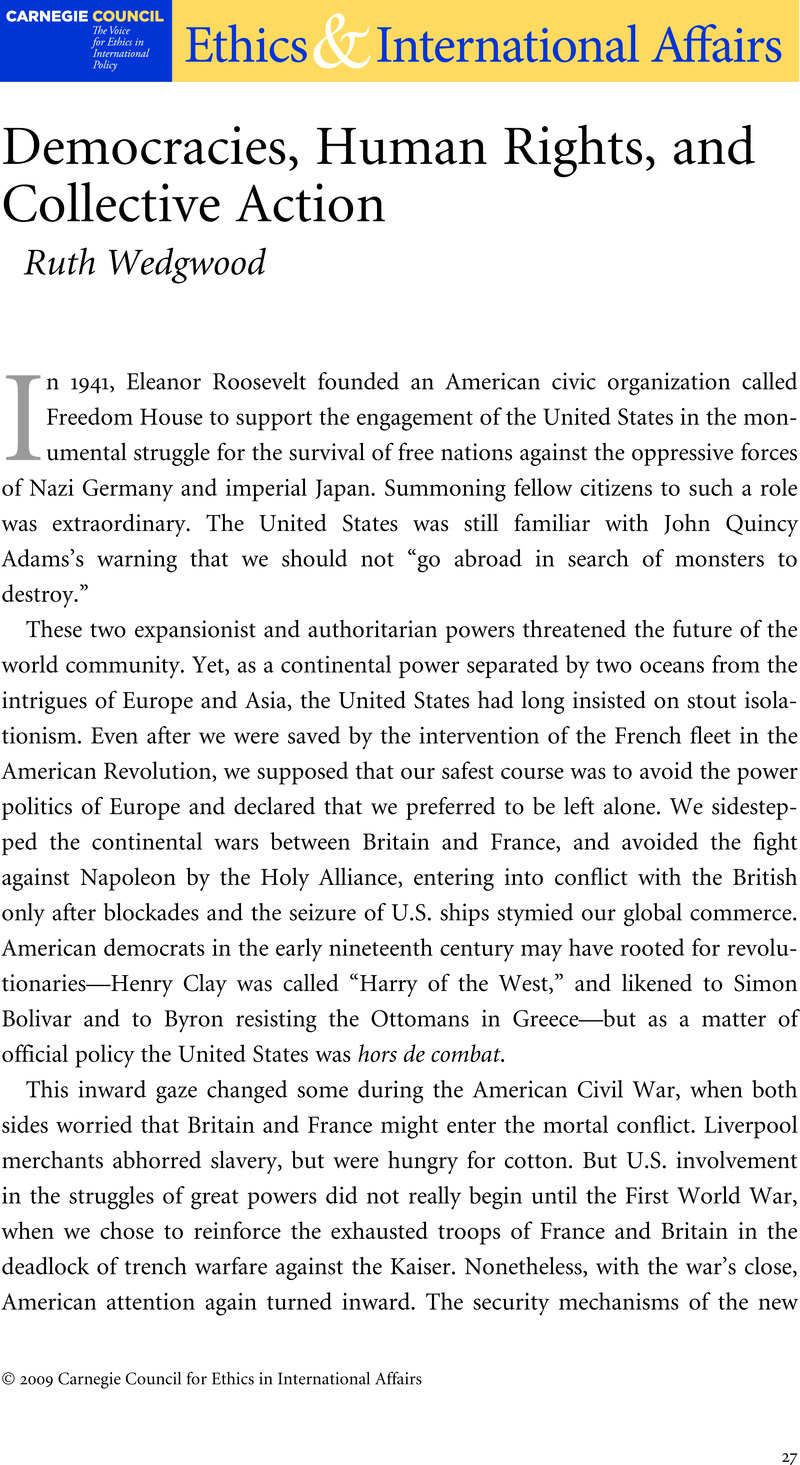No CrossRef data available.
Article contents
Democracies, Human Rights, and Collective Action
Published online by Cambridge University Press: 25 March 2011
Abstract

- Type
- Roundtable
- Information
- Copyright
- Copyright © Carnegie Council for Ethics in International Affairs 2009
References
NOTES
1 It is startling to recall how the war transformed the isolationist views of prominent postwar leaders. Though one hesitates to summon the memory, members of “America First,” an active lobby against joining the war, included such important postwar leaders as Philip Jessup, who became a judge of the International Court of Justice, Potter Stewart, who became a justice of the U.S. Supreme Court, and Kingman Brewster, who became the president of Yale.
2 As the G-77 describes itself, it is “the largest intergovernmental organization of developing states in the United Nations, which provides the means for the countries of the South to articulate and promote their collective economic interests and enhance their joint negotiating capacity on all major international economic issues.”
3 “Report of the Secretary-General on the support by the United Nations system for the efforts of Governments to promote and consolidate new or restored democracies,” A/51/761, December 20, 1996; reprinted under the title “Agenda for Democratization,” DPI/1867 (97.I.3), para. 5.
4 UN Human Rights Committee, General Comment No. 32, Article 14: Right to equality before courts and tribunals and to a fair trial, UN Doc. CCPR/C/GC/32, 23 August 2007, at paragraph 24.
5 Compare Rein Mullerson, “Promoting Democracy without Starting a New Cold War?” Chinese Journal of International Law 7, no. 1 (March 2008), p. 2 (“though only few of those who are involved in the business of exporting democracy are driven primarily by altruistic concerns . . . quite a few exporters of democracy have in mind rather different considerations such as oil, gas, war against terror and strategic advantages, and do not give a damn about democracy.”)
6 See Report of the High-Level Panel on Threats, Challenges and Change, A more secure world: our shared responsibility, December 2004, U.N. Doc. A/59/565; available at http:\\www.un.org/secureworld/report.pdf.
7 See “Secretary-General Presents His Annual Report to General Assembly,” UN Press Release SG/SM/7136, GA/9596 (September 20, 1999): “To those for whom the greatest threat to the future of international order is the use of force in the absence of a Security Council mandate, one might ask—not in the context of Kosovo—but in the context of Rwanda: If in those dark days and hours leading up to the genocide, a coalition of States had been prepared to act in defence of the Tutsi population, but did not receive prompt Council authorization, should such a coalition have stood aside and allowed the horror to unfold?” See also “Statement of Danilo Turk, Permanent Representative of Slovenia,” in UN Press Release SC/6659 (March 26, 1999): Council has “primary, but not exclusive responsibility for maintaining international peace and security.”
8 Ruth Wedgwood, “Give the United Nations a Little Competition,” New York Times, December 5, 2005.




